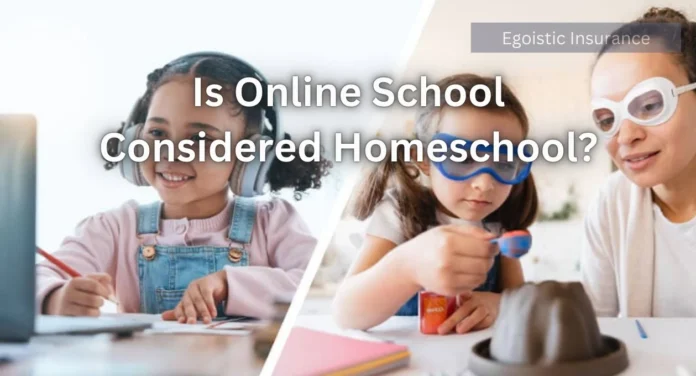Many families are grappling with the question: Is online school considered homeschool? The answer is more nuanced than a simple yes or no.To understand this better, let’s delve into online school considered homeschooling and how online school fits into this framework.
Homeschooling typically refers to a method where parents take the primary responsibility for their child’s education, often designing a personalized curriculum that fits their child’s unique learning style. This approach can vary significantly from family to family, encompassing a range of educational philosophies, teaching styles, and socialization opportunities.
On the other hand, online schooling generally involves a structured curriculum provided by an institution, often with certified teachers and set schedules. While both methods prioritize individualised learning, online school may not always grant the same level of freedom in curriculum choices as traditional homeschooling does, which may lead to the distinction that online school is more aligned with formal education rather than the flexible, parent-led approach typically associated with homeschooling.
Defining Homeschooling
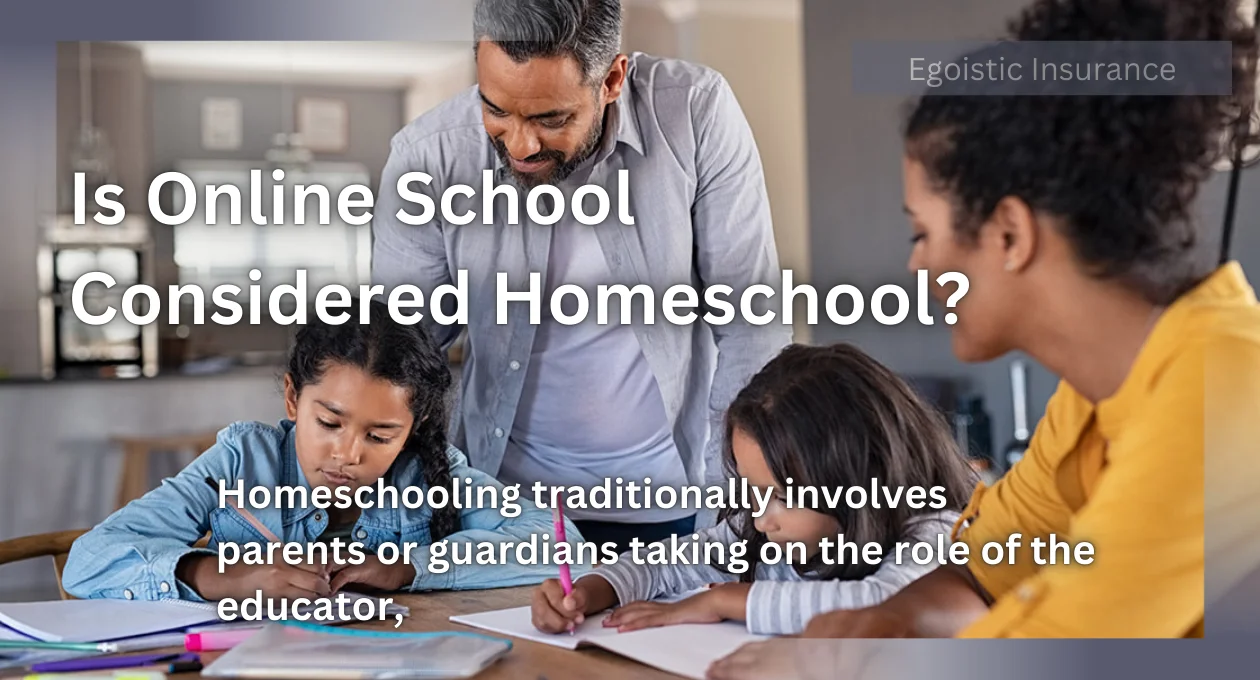
Homeschooling traditionally involves parents or guardians taking on the role of the educator, delivering curriculum and instruction directly to their children at home. This method of education is highly flexible, allowing families to tailor the learning experience to their child’s needs, interests, and pace. Homeschooling typically requires adherence to state regulations and standards, which vary from one location to another.
One significant aspect of online schooling is the level of support available to students. Typically, online schools offer resources such as access to qualified educators, structured lesson plans, and interactive tools that can enhance the learning experience. This support can be especially beneficial for students who may struggle with self-motivation or require additional guidance to grasp complex subjects.
Another key difference lies in the socialization opportunities provided by each approach. While homeschooling often requires parents to actively seek out extracurricular activities and social events for their children, online schools frequently create built-in networking opportunities through virtual classrooms and scheduled activities, allowing students to connect with their peers. This can help foster relationships and promote collaboration while balancing academic goals with essential social development.
The Rise of Online Schooling
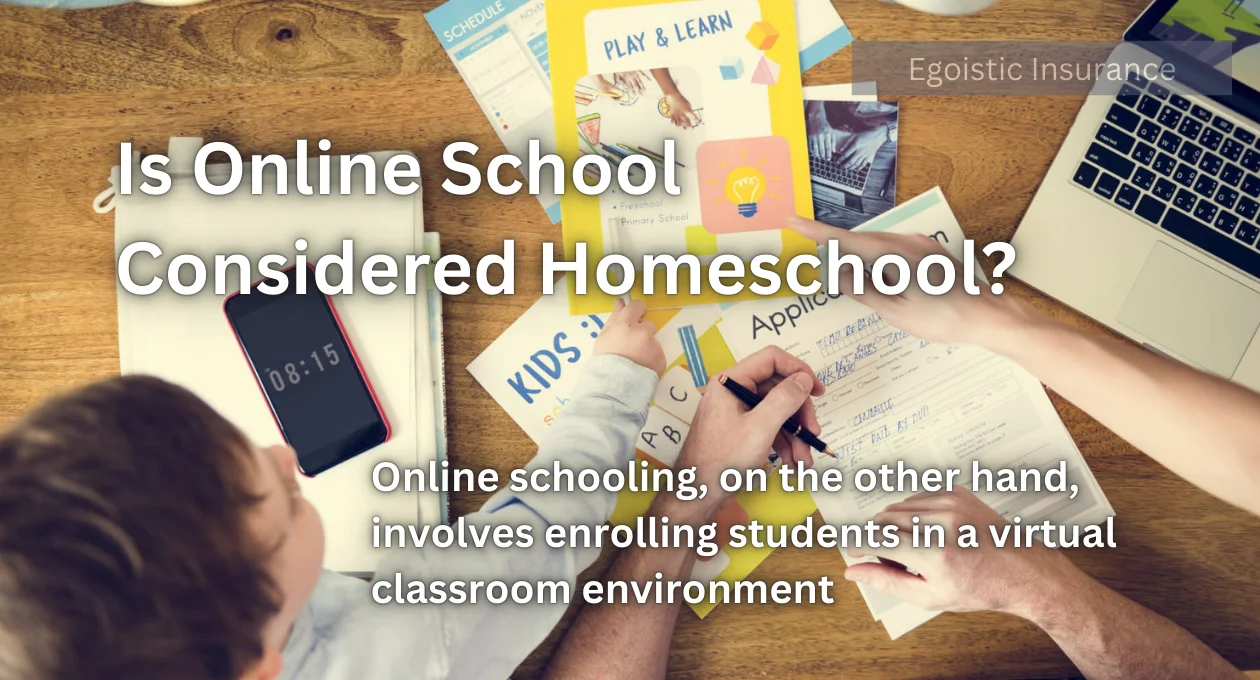
Online schooling, on the other hand, involves enrolling students in a virtual classroom environment where they participate in lessons, complete assignments, and interact with teachers and classmates through the internet. Online schools can be part of a public school system, charter school, or private institution. They offer structured curricula, certified teachers, and often follow the same academic standards as traditional schools.
One prominent benefit of online schooling is its accessibility, which can be particularly advantageous for families living in remote areas or those with limited access to traditional educational resources. Students can learn from the comfort of their homes, avoiding long commutes and providing a safe environment for their studies. This ease of access can also cater to various schedules, allowing students to engage in other activities outside of their education, such as sports or part-time work.
However, the question of whether online schooling is a suitable replacement for traditional homeschooling is still debated. While both offer flexibility in learning, the level of parental involvement and the educational philosophy underpinning each approach can differ significantly. Some families may prefer the structured support of online schooling, while others might value the freedom and personalization of homeschooling, ultimately leading to varied choices based on individual preferences and child needs.
Comparing Online School and Homeschool
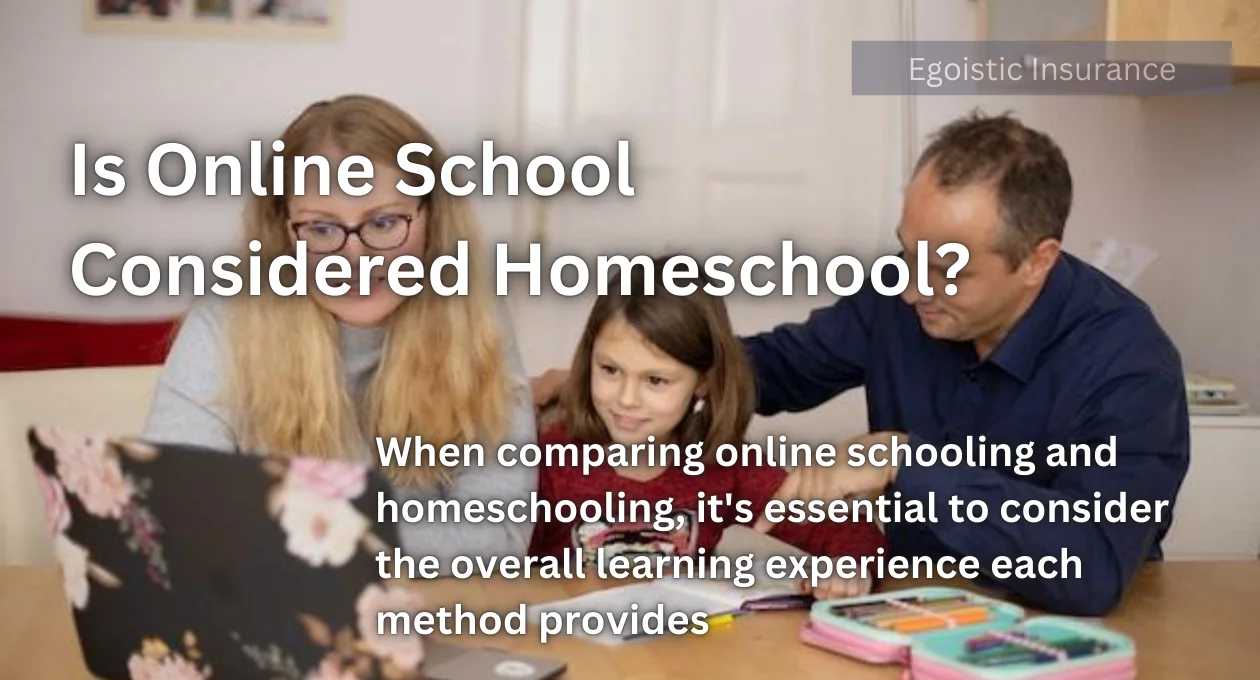
When comparing online schooling and homeschooling, it’s essential to consider the overall learning experience each method provides. Online schooling often emphasizes technology and digital tools, equipping students with skills that can be advantageous in the modern workforce. Students may engage in multimedia content, virtual simulations, and collaborative projects that broaden their educational horizons. This technological integration can enrich learning but may also present challenges for students who struggle with digital literacy.
Conversely, homeschooling promotes a more hands-on approach to education, allowing families to explore subjects in-depth through practical experiences like field trips, experiments, or community service. This method encourages families to delve into their interests, often leading to a deeper understanding of subjects. The personal investment parents make in their children’s education can create strong family bonds and a sense of autonomy in learning, although it requires considerable time and resource commitment.
Instructional Delivery
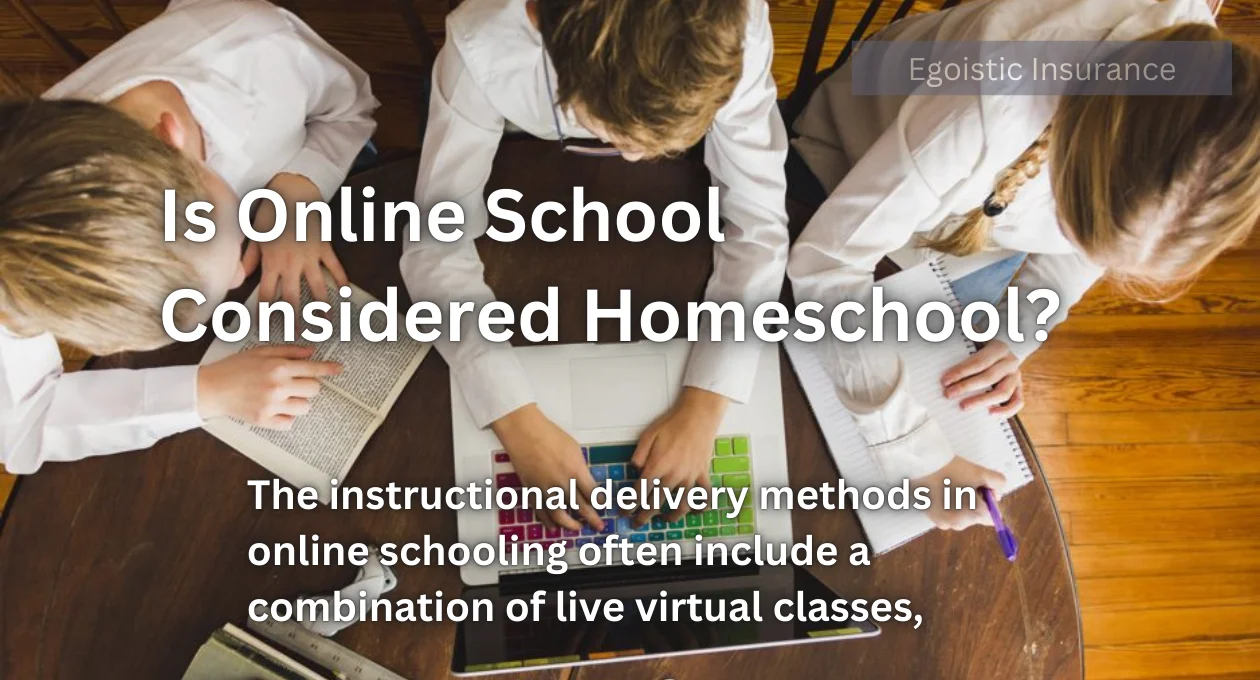
The instructional delivery methods in online schooling often include a combination of live virtual classes, pre-recorded lessons, and interactive online modules. This structure enables students to engage with materials at their own pace while still benefiting from real-time interaction with instructors. Additionally, online platforms may incorporate various assessments to track student progress and provide feedback, ensuring that educational objectives are met.
In contrast, homeschooling typically involves a more personalized approach, where parents can choose how to deliver instruction based on their child’s learning style. This might include hands-on projects, educational games, or even outdoor learning experiences. The flexibility inherent in homeschooling allows families to explore subjects in greater depth, fostering a more profound understanding and retention of knowledge, although it may require more effort in creating a structured curriculum.
- Homeschool: Education is usually delivered by the parents or guardians, who design the curriculum and schedule. Parents may use various resources, including textbooks, educational websites, and hands-on activities.
- Online School: Instruction is conducted by certified teachers through a digital platform. Students follow a structured curriculum set by the online school, and lessons are delivered via video, live sessions, or pre-recorded materials.
Curriculum and Structure
- Homeschool: Families have the freedom to customize the curriculum according to their child’s needs and interests. This can include using a mix of resources or creating a unique educational plan.
- Online School: The curriculum is generally standardized and provided by the online school. It follows a set schedule and includes assessments and grading, similar to traditional schooling.
Teacher Interaction
- Homeschool: The primary educator is typically a parent or guardian. However, families may seek out tutors or participate in co-op programs for additional instruction.
- Online School: Students interact with certified teachers who provide instruction, support, and feedback. Teachers are responsible for managing the classroom and ensuring that students meet academic standards.
Socialization Homeschool
Socialization opportunities may vary. Some homeschooled students engage in community activities, sports, or group classes to interact with peers.
- Online School: Many online schools offer virtual socialization opportunities through online discussion boards, group projects, and extracurricular activities.
Regulation and Accountability:
- Homeschool: Regulations vary by state or country. Some areas have strict requirements for documentation and standardized testing, while others offer more flexibility.
- Online School: Online schools are typically regulated by educational authorities and must adhere to state or national educational standards. They often have structured assessment and reporting systems.
Is Online School Homeschool?
The debate surrounding the effectiveness of online schooling versus homeschooling continues to evolve as technology and educational needs change. Many parents find that online platforms can provide a comprehensive educational experience that combines structure with the flexibility needed for modern lifestyles. This blend not only accommodates varying learning paces but also allows families to incorporate personal interests into the curriculum, creating a more relevant and engaging learning environment.
Additionally, considerations around socialization play a significant role in this discussion. While traditional schooling environments naturally foster peer interactions, online schooling often includes organized virtual meetups and extracurricular activities to encourage social engagement. Conversely, homeschooling requires parents to be proactive in seeking out opportunities for their children to connect with peers, whether through sports, community events, or co-op classes, ensuring a well-rounded social experience regardless of the educational method chosen.
Technically, online school is not considered traditional homeschooling because it involves enrolling in a structured program provided by an educational institution, rather than creating a custom curriculum managed by parents. Online schooling offers a middle ground between traditional public or private schools and homeschooling. It provides the flexibility of remote learning while maintaining a structured educational framework.
Advantages and Disadvantages
Both online schooling and homeschooling come with their distinct advantages and disadvantages that families need to consider. Online schooling often provides a broad range of resources and support, including access to certified teachers and structured lesson plans, which can be beneficial for parents who may feel unequipped to teach specific subjects. However, it may lack the flexibility to adapt lessons extensively to a child’s interests. Conversely, homeschooling allows for a highly personalized educational experience, fostering deeper connections between students and learning materials. Nonetheless, parents must dedicate significant time and energy to create a structured curriculum and seek socialization opportunities for their children, which can be overwhelming for some families. Understanding these pros and cons is essential for parents when deciding the most suitable educational path for their children.
Making the Choice
When navigating the decision between online schooling and homeschooling, it’s important for families to reflect on their specific needs and circumstances. Factors such as the child’s learning style, the parents’ teaching capabilities, and the family’s daily schedule can significantly influence the choice. Some families may prefer the structured environment of online schooling, which offers guidance from certified educators and a set curriculum, while others might thrive in the more adaptable framework of homeschooling, where they can create a learning experience tailored closely to their child’s interests and strengths. Ultimately, the best choice depends on balancing educational goals with the unique dynamics of each family, ensuring that children receive the support and engagement necessary to succeed academically and socially.
As families navigate the complexities of educational choices, it’s essential to remain open to the possibility of blending elements from both online schooling and homeschooling. Hybrid approaches can harness the strengths of each method, providing children with a tailored educational experience while also maintaining necessary structure and support. With the right resources and planning, families can incorporate aspects such as online courses for core subjects while allowing for hands-on learning and exploration in less conventional areas.
Moreover, parental involvement plays a crucial role in shaping a child’s educational journey, whether through direct teaching or facilitating online resources. Parents who actively engage with their children’s learning process can deepen understanding and foster a love for learning. Creating a supportive atmosphere where children feel encouraged to ask questions and explore new ideas can enhance the educational experience, promoting both academic success and personal growth.
FAQs
Q1: What is the primary difference between online schooling and homeschooling?
A1: The main difference lies in the structure and delivery of education. Online schooling typically involves enrolling in a virtual educational program with a set curriculum provided by an institution, whereas homeschooling allows parents to create and manage a custom curriculum for their children.
Q2: Can children be socialized effectively in online schools?
A2: Yes, online schools often include organized virtual activities, group projects, and forums, fostering social interaction. However, parents may also consider additional community events to enhance social experiences.
Q3: Are online schools and homeschools regulated by the same standards?
A3: No, online schools are generally bound by state or national educational standards and have regulatory oversight, while homeschooling regulations can vary widely depending on local laws and requirements.
Q4: What are the advantages of homeschooling compared to online schooling?
A4: Homeschooling offers greater flexibility in curriculum design and the ability to tailor lessons to a child’s interests and learning styles, creating a personalized and adaptable educational experience.
Q5: How can parents ensure a balanced education in homeschooling?
A5: Parents can seek out co-op classes, local sports teams, and community events to provide learning opportunities beyond the home environment, ensuring comprehensive socialization and well-rounded education for their children.
Q6: Is it possible to combine online schooling and homeschooling?
A6: Yes, many families adopt a hybrid approach, incorporating online courses for core subjects while allowing for hands-on learning and exploration in other areas, thereby customizing the educational experience to meet their child’s unique needs.
Conclusion
Ultimately, the choice between online schooling and homeschooling requires careful consideration of various factors and personal values. Families must weigh the benefits of flexibility against the need for structure, and assess their resources and abilities to support their children’s education. Regardless of the path chosen, the focus should be on fostering a nurturing learning environment that promotes curiosity and growth. By prioritizing the child’s needs and strengths, parents can enable a successful educational journey tailored to their family dynamics.
While online school shares some similarities with homeschooling, such as the flexibility of learning from home, it is fundamentally different due to its institutional framework and structured curriculum. Understanding these differences can help families make informed decisions about their educational options. Whether choosing online school or traditional homeschooling, the goal remains the same: providing the best educational experience tailored to the needs of the student.
For more interesting information keep visiting egoisticinsurance.online


